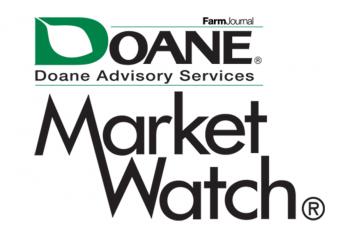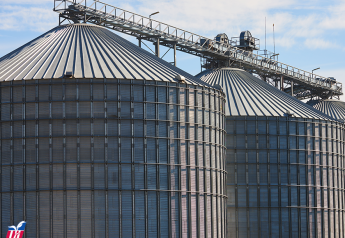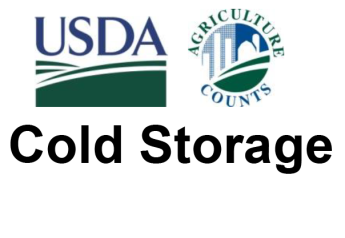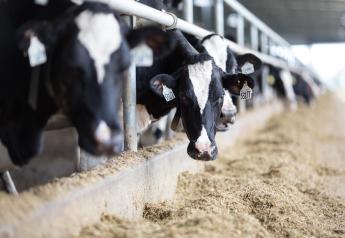Evening Report | May 18, 2022
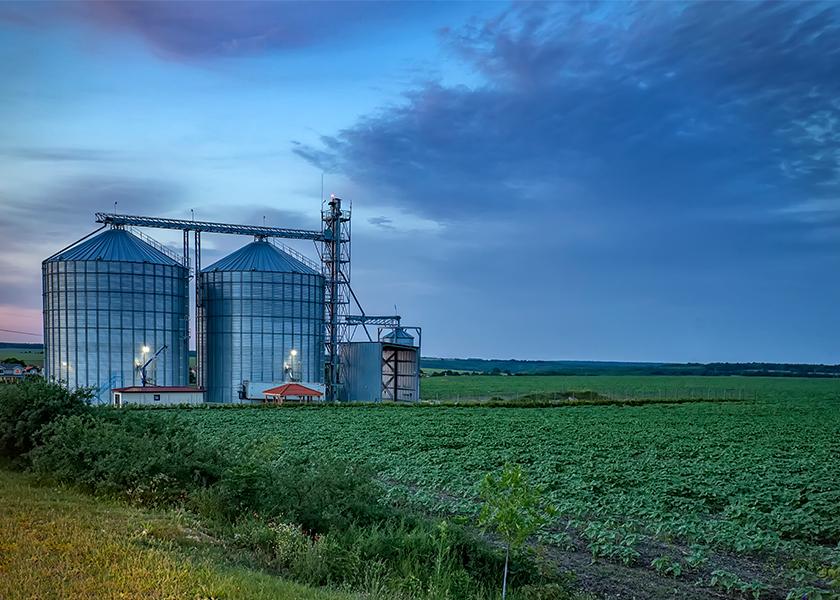
Check our advice monitor on ProFarmer.com for updates to our marketing plan.
Update on ERP payment calculation... After yesterday’s item on the payment calculation for the Emergency Relief Program (ERP; formerly called WHIP+), we received multiple emails with questions. ERP will follow crop insurance, so expected revenue will track with the insurance. If a producer had the Harvest Price Option, that will be used to determine expected revenue.
UN in talks to restore Ukraine grain shipments... United Nations Secretary-General Antonio Guterres is in talks with Russia, Ukraine, Turkey, the United States and the European Union aimed at restoring Ukraine grain shipments and reviving fertilizer exports from Russia and Belarus. Guterres is at a “Global Food Security Call to Action” ministerial meeting in New York. The war in Ukraine has fueled soaring global prices for grains, cooking oils, fuel and fertilizer, and Guterres has warned it will worsen food, energy and economic crises in poor countries.
The U.S. backs Guterres’ efforts to revive Ukrainian grain exports. U.S. Ambassador to the UN, Linda Thomas-Greenfield, blamed Russia’s war in Ukraine for worsening global food insecurity. “Their blockade of ports not allowing food and wheat to leave Ukraine, their efforts to keep farmers from planting their farms, their attacks on food silos – all of this has contributed to an already dire situation,” Thomas-Greenfield told a UNICEF event on Tuesday.
SovEcon expects record Russian wheat crop... SovEcon raised its Russian wheat crop estimate by 1.2 MMT to a record 88.6 MMT, citing excellent condition of the winter wheat crop and increased spring wheat area. Andrey Sizov, head of the Black Sea ag consultancy, said: “The chance of exceptional winter crop in Russia is rising as we pass one milestone after another. The emergence of plants after the winter and March-April weather was an important stage and plants look better after it. Looking at the weather forecast for the next weeks we don’t rule out the possibility of a further increase in the forecast.”
SovEcon estimated Russia’s 2022-23 wheat exports at 41 MMT earlier this month. It estimates supplies from Russia will account for more than 20% of 2022-23 global wheat trade. “Russia’s importance to the global wheat balance in the new season is likely to be unprecedented,” Andrey Sizov, the head of SovEcon said.
Next year will be worse for Ukraine farmers than 2022... Ukraine’s agricultural production may fall 30% to 40% this year due to the war, but 2023 will be “very bad,” said Dmitriy Skorniakov, CEO of Harveast Agri Holding in Ukraine. “Sooner or later, we’ll find some solution with logistics” for exports, but sales could be later than normal, he said at the GrainCom conference in Geneva. For example, wheat that would usually be sold in July might only be cleared by year’s end. Corn sales that usually took place from October to March might get delayed to the December-to-June timeframe. That means a huge “money gap” for farmers, and they’ll also need to pay for inputs sooner, as seed and input companies are less willing to sell the products on loan.
G7 mulls Ukraine aid as Yellen, Lindner call for Marshall Plan... Group of Seven (G7) finance ministers meeting in Bonn this week will discuss an aid package to support the immediate financial needs of Ukraine, according to government officials. While final figures have not yet been decided, the G7 is expected to consider a preliminary contribution of 5 billion euros ($5.3 billion) for the first month. U.S. Treasury Secretary Janet Yellen referenced the Marshall Plan as a model of what Ukraine might one day need. Named after former Secretary of State George C. Marshall, that was a huge U.S. support package to aid war-torn Europe.
“Eventually, Ukraine will need massive support and private investment for reconstruction and recovery, akin to the task of rebuilding in Europe after 1945,” she said in a speech in Brussels. “What’s clear is that the bilateral and multilateral support announced so far will not be sufficient to address Ukraine’s needs, even in the short term.” Speaking at a Marshall Fund event in Berlin on Tuesday evening, German Finance Minister Christian Lindner agreed, saying his country’s development bank — KfW — should be part of any plan.
Biden administration poised to fully block Russia’s ability to pay U.S. bondholders... The move could bring Moscow closer to the brink of default. The Treasury Department’s Office of Foreign Assets Control is expected to let a temporary exemption lapse once it expires on May 25, according to reports. The waiver, issued shortly after the U.S. levied sanctions on Russia over its invasion of Ukraine in February, has given Moscow room to pay coupons, helping it avert default on its government debt.
Firm cuts Brazilian safrinha corn crop estimate... Brazil’s safrinha corn crop is expected to reach 87.6 MMT, down from a previous 92.2-MMT forecast, according to Agroconsult. The Brazil-based consultancy cut its crop estimate ahead of its crop tour through safinha corn areas.
Placements key in Cattle on Feed Report... USDA’s Cattle on Feed Report Friday afternoon is expected to show the May 1 feedlot inventory up 1.3% from year-ago, which would mark the fifth consecutive month of year-over-year gains in feedlot supplies. But the figure traders keenly await is April placements after the March figure greatly topped expectations. On average, analysts expect April placements to have declined 4.6% from year-ago. Marketings are expected to be down 2%.
|
Avg. Trade Estimate (% of year-ago) |
Range |
Million head |
|
|
On Feed on May 1 |
101.3 |
100.5-101.8 |
11.877 |
|
Placements in April |
95.4 |
89.1-97.8 |
1.737 |
|
Marketings in April |
98.0 |
97.7-99.0 |
1.899 |
House Ag panel advances bill to create special investigator at USDA on meat industry competition... The House Agriculture Committee on Wednesday voted 27-21 to advance a bill to establish USDA investigative office to probe competition in the meat and poultry industries. Republicans, including ranking member Rep. GT Thompson (R-Pa.), opposed the creation of the office, claiming it would duplicate existing authorities and create unnecessary bureaucracy. Rep. Austin Scott (R-Ga.) said Democrats have wrongly blamed the meatpacking industry for higher meat prices while they have pursued policies that he said raised energy costs that have rippled through the economy. “It’s a horrible piece of legislation,” Scott said, adding that it showed someone without an agricultural background had written it.
Rep. Abigail Spanberger (D-Va.), the bill’s sponsor, cited the lack of updates after two years of investigation of the meatpackers by the Department of Justice as evidence that such an office is needed.
By voice vote, members agreed to an amendment by Rep. Jim Costa (D-Calif.) that would require the head of the special investigator office to be a senior career executive rather than a political appointee. Members also by voice vote agreed to an amendment by Rep. Jimmy Panetta (D-Calif.) that would require the special investigator to coordinate with the USDA’s general counsel office and with the Packers and Stockyards Division of the Agricultural Marketing Service. The special investigator also would have to notify the U.S. attorney general of any legal action the office takes in a federal district court.
Even if the bill passes the full House, it will not have enough votes to get through the Senate.
House Ag panel approves bill to expand meat processing capacity... Congress would create a loan and guarantee program to expand competition in the meat processing industry under a bill approved by the House Agriculture Committee on Tuesday. The bill would authorize up to $20 million a year through 2024 for the loan guarantees. Proponents said the bill would be a permanent version of a $500 million USDA initiative announced last summer. The House Ag Committee approved the measure on a voice vote. It would authorize USDA loan guarantees for projects in rural areas that would expand and diversify the meat processing sector, improve employment or expand markets. In most cases, USDA would not be allowed to make or guarantee a loan of more than $50 million. The limit would be $100 million for cooperatives.
Yellen warns of stagflation effects... Treasury Secretary Janet L. Yellen said elevated food and energy prices were depressing both spending and economic output, creating what she called “stagflationary effects” around the world. Yellen suggested the U.S. was well placed to withstand the turbulence.
As we reported in Monday’s “Evening Report,” former Fed Chair Ben Bernanke warned the U.S. economy could be heading toward a period of stagflation.
Heightened risk of electricity shortages... The nation’s power grid watchdog warns that large portions of the U.S. face a heightened risk of electricity shortages in the coming months, firming up assessments individual grid operators have made in recent weeks about the threat of blackouts during peak summer demand.
The North American Electric Reliability Corporation (NERC), which is charged with protecting grid operations across the U.S. and Canada, released a report today assessing the entire West to be at “elevated” risk of struggling with insufficient electricity reserves between June and September. NERC judged much of the Midwest’s risk level to be “high.”

